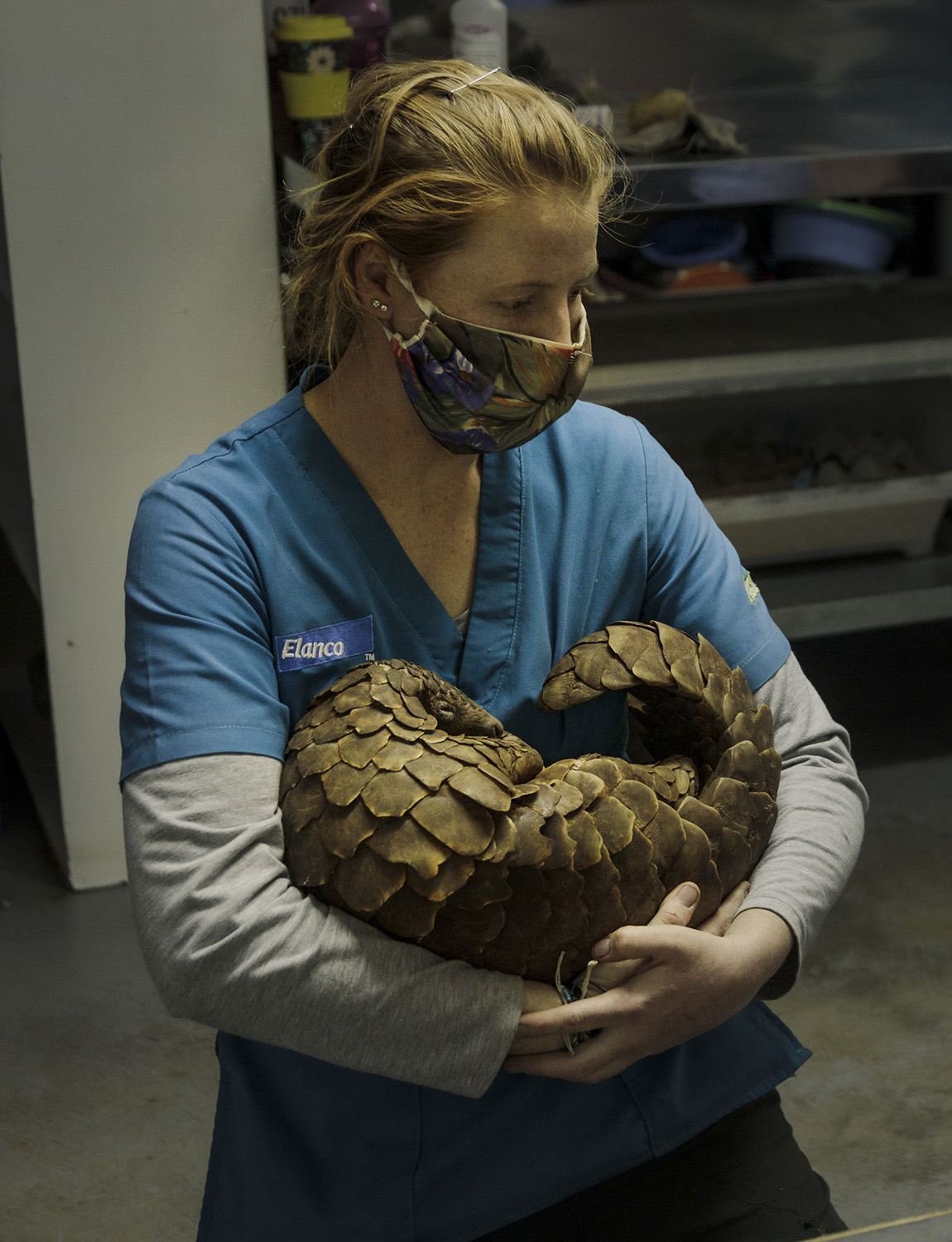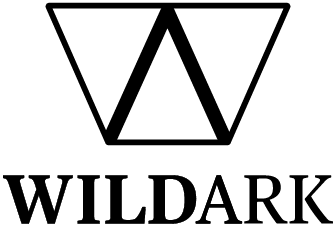The Johannesburg Wildlife Veterinary Hospital is the only one of its kind in Gauteng. © Gareth Thomas
Interview by Rory Francis
The Johannesburg Wildlife Veterinary Hospital is a dedicated wildlife ONLY veterinary hospital in Johannesburg, South Africa. It aims to improve the quality of treatment, survival rate and success rate of rehabilitation of small to medium-sized indigenous South-African wildlife including bats, owls, raptors, mongoose, pangolin, meerkat, serval, genet, hedgehogs, bush babies, garden birds, water birds, otters and much more. The hospital has a full-time vet on staff, Dr Karin Lourens (currently the most experienced veterinarian, worldwide, in the treatment of Temminck’s pangolin) as well as a wildlife rehabilitation specialist Nicci Wright (who has over 20 years of experience in her field), to ensure the best possible treatment and rehabilitation outcomes for sick and injured wildlife.
We chatted to Karin and Nicci to find out more about their work and how critical their facility is for wildlife in South Africa.
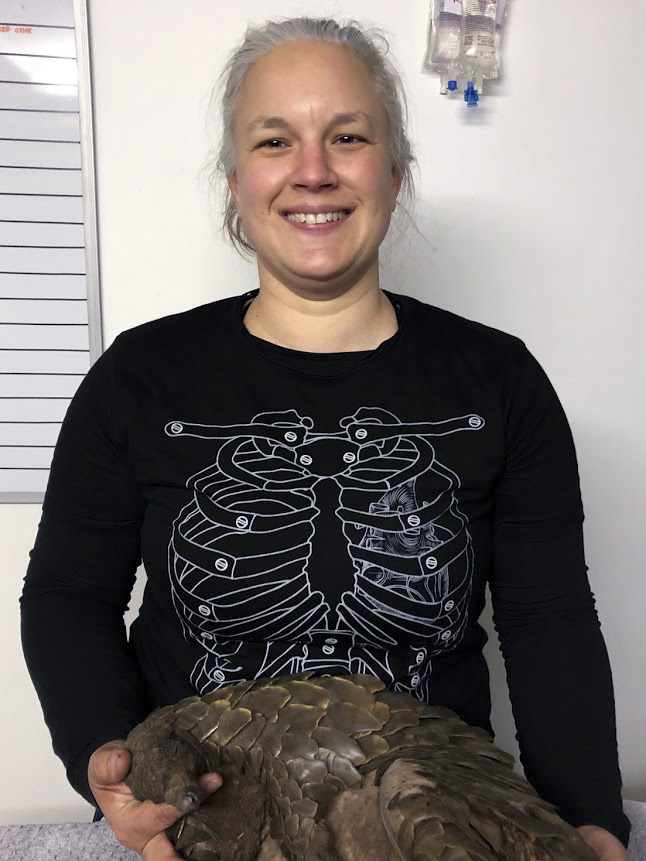
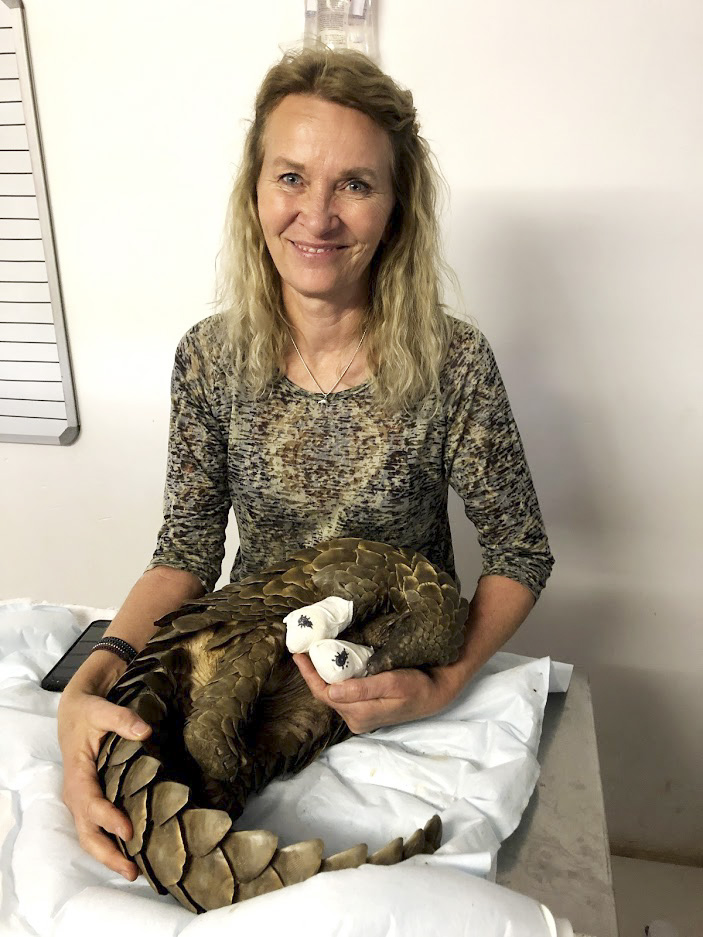
(Left) Dr. Karin Lourens is the full-time veterinary surgeon and Founder/ Director of the Johannesburg Wildlife Veterinary Hospital. (Right) Nicci Wright is a wildlife rehabilitation specialist and Founder/ Director of the Johannesburg Wildlife Veterinary Hospital. © Gareth Thomas
How important is the work that goes on at the Johannesburg Wildlife Hospital for native wildlife and how many animals does the practice treat?
Over the past three years, we have treated almost 6000 indigenous birds, mammals, and reptiles. The facility offers both veterinary care and rehabilitation facilities for orphaned, injured, or ex-situ wildlife. This ensures each patient receives the very best care and a chance for recovery.
Karin, how did your interest and passion for protecting wildlife evolve over the course of your life and career?
I have always been interested in conservation and protecting wildlife – I recently discovered a piece I wrote for my grade 10 yearbook on humans destroying the earth, so it started quite young. Now that we are working with law enforcement and organisations like the NSPCA, I feel we can do so much more to help. The more I see, the more I want to help. And because we are successful, it makes me even more determined to make a difference AND inspire others to do the same.
Nicci you have considerable experience in wildlife rehabilitation, what does the future of conservation of lesser-known species such as the otter and pangolin species look like to you?
I think the key lies in the carer’s expertise. Over the 20-plus years of my career, I have built up a body of experience treating over 350 species of indigenous wildlife. I have contributed and shared this knowledge and my learnings with international groups such as the IUCN Otter Specialist Group and the IUCN Pangolin Specialist Groups as well as various other bodies to ensure that this knowledge benefits the species far and wide.
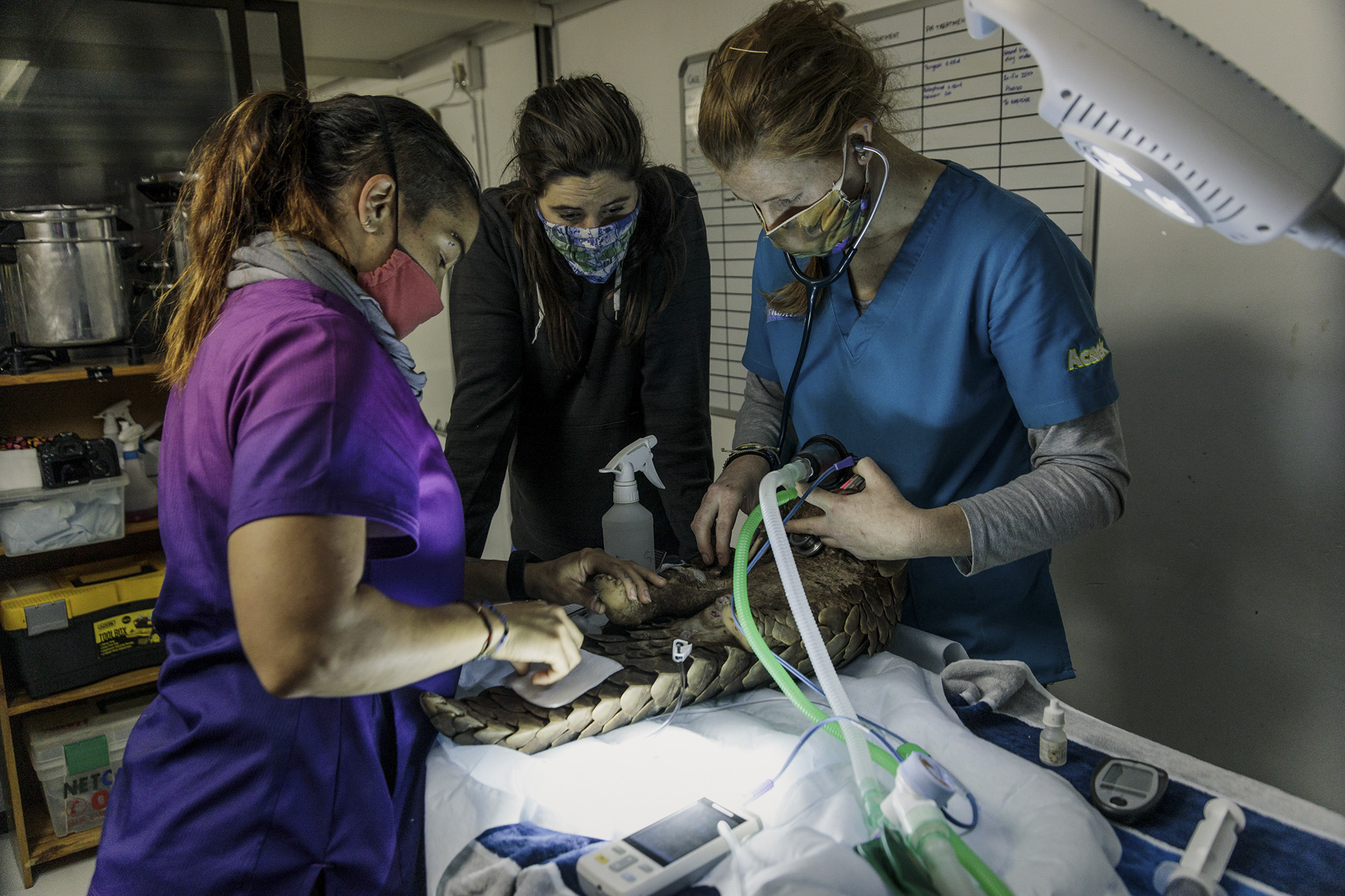
The Johannesburg Wildlife Veterinary Hospital specialises in treating small to medium-sized indigenous wildlife. © Gareth Thomas
Being a strictly indigenous wildlife veterinary practice, where does the wildlife you treat come from and where are they released after they have been rehabilitated in Johannesburg?
The wildlife we treat comes from all across South Africa, from rural areas, farms, and also urban situations, where there has been wildlife/human conflict of some sort. We have a selection of release sites across the country which encompass a variety of habitats suitable for specific species – from the Kalahari to the bush-veld and everything in between. We are very careful to follow best practice release protocols and one of those is to return individual animals back to their original territory, whether that be urban or not, as long as it is safe.
Johannesburg is such an enormous and very urban city. Why is your wildlife veterinary practice situated here?
We have access to all the specialist veterinarians that we may need to assist with treating any of our cases. Being central, we are easily accessible by road and also via private planes which we do use to bring cases in that require urgent attention. For urban wildlife, the public can access our facility easily which is a great support to our community.
What is the range of wildlife you treat?
We treat any small and medium species of mammal and all bird and reptile species.
What facilities do you have at the JWV? What are some of the more advanced procedures you are able to perform?
We have a fully operational veterinary hospital, which includes an operating theatre (here we can perform orthopedic or soft tissue surgeries), we have an ultrasound machine, a blood chemistry machine, a microscope, etc.
It says on your website that you hope to become a world-class facility, what are you doing to achieve this?
We continue to follow best practice wildlife rehabilitation processes and also continually improve on the veterinary treatment and care that we provide for our patients. We collaborate with facilities and veterinarians, both locally and internationally, sharing information and techniques. Constant improvement and increased success rates are what elevate a facility and this is what inspires us to strive for continual improvement
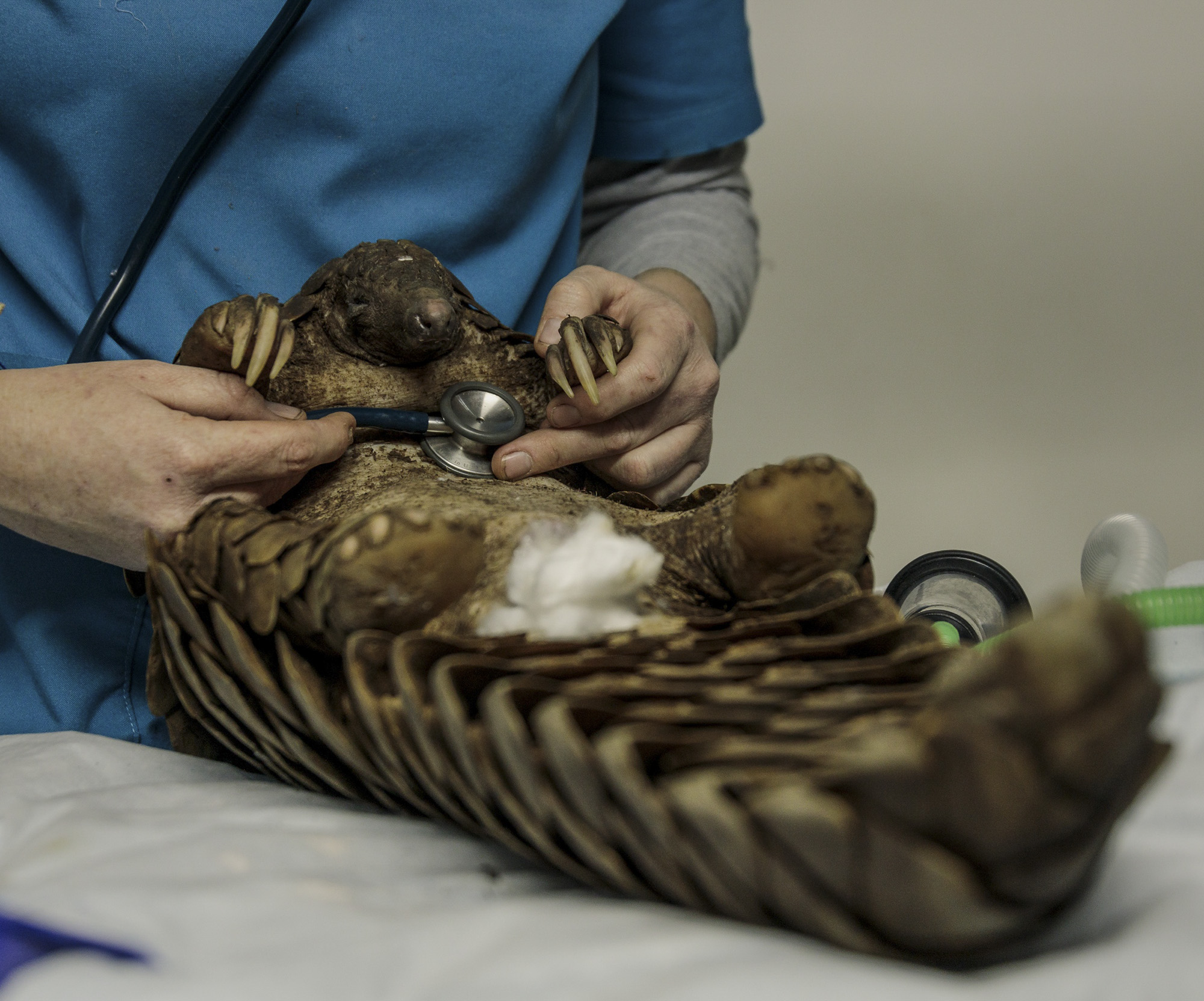
The JWVH team frequently treats sick and injured Pangolins rescued from the illegal wildlife trade. © Gareth Thomas
What are some of the challenges associated with treating wildlife that your practice focuses on?
We are challenged by the never-ending pressure on wildlife by human encroachment and habitat loss. This results in wildlife being involved in snaring, hunting with dogs, electrocution on fences, impacts with cars, being sold on the roadside, etc. The injuries that come with animals being rescued or retrieved from these situations are varied.
How important is adapting rehabilitation strategies to specific animal behaviour of that species? And how does JWV’s ‘sponsor a species program’ help provide species-specific care?
Providing the correct rehabilitation for each animal is absolutely key to the success of that species. We must fully understand the behaviour of each species we are working with. Without this knowledge, one cannot provide the correct enclosure, husbandry, stimulation, and enrichment or natural food items. This is essential for the overall well-being of each animal in our care from small rodents to bats to carnivores and specialist feeders.
JWV naturally must feed all the animals being rehabilitated, how much food does the clinic go through in a week, and is it hard to source? What has the response been to your innovative #onemeal and sponsorship programs?
The #onemeal has been very successful. It is quite pricy to feed all our patients and it varies between seasons – Summer is busier. We can spend anything from R5000 to R10 000 per week on food.
What sort of information does JWV pass onto other rehabilitation practices about the various species of wildlife?
Nicci Wright has developed a series of wildlife rehabilitation courses and workshops which she teaches across the country. The JWVH also has an intern program where we facilitate vets, vet nurses, rehabilitators, and others, both students and professionals. They spend time working alongside us and there is a mutual sharing of information and knowledge. We are also constantly on call to facilities, veterinarians, and rehabilitators across Africa and happily share wherever we can.
JWV has been mentioned numerous times in the press, what are some of the most memorable stories?
Some of our world-first success with key species such as Temminck’s pangolin and the development of their treatment and rehabilitation has led to some wonderful press coverage. Good news release processes of African clawless otter, raptors including the reunion of a baby vervet with his mother and troop are all inspiring and we love sharing these.
